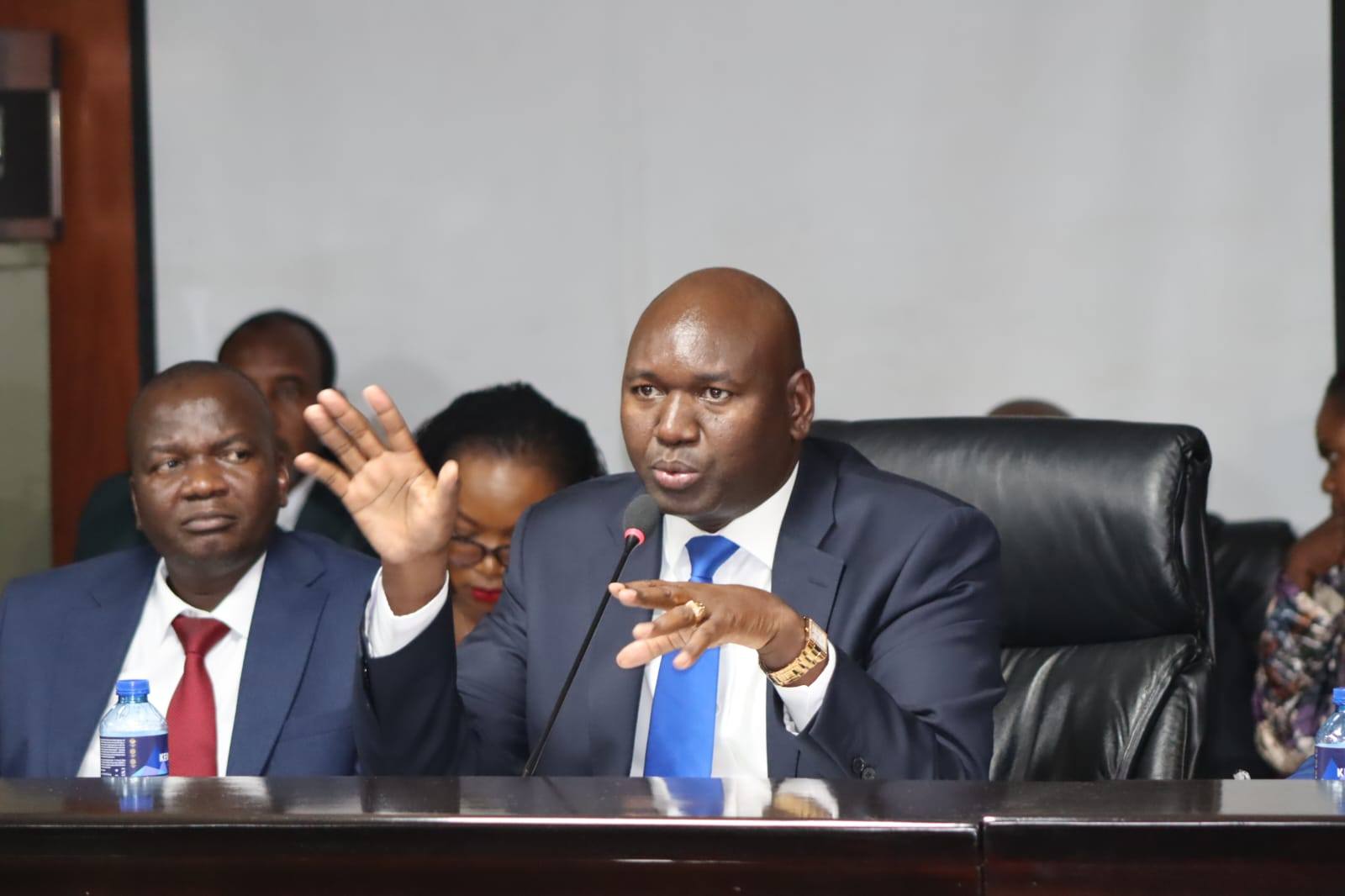By Roy Hezron
International education lobby groups have written to President Uhuru Kenyatta to intervene in labour disputes between the Kenya National Union of Teachers (Knut) and the Teachers Service Commission (TSC),
The leadership of Education International Africa Region, All India Primary Teacher Federation, the New Zealand Post Primary Teacher’s Association (PPTA) and South African Democratic Teachers’ Union (SADTU) in their letters to Kenyatta, pleads that TSC be stopped from their onslaught to Knut throwing their weight in the manner in which Knut members were discriminated during the implementation of the current CBA.
“Since 2019, the TSC has engaged in a systematic campaign against Knut. It has discriminated against members of Knut, excluded Knut members from the Collective Bargaining Agreement (CBA) since July 2019 and deprived the union of membership dues,” reads the New Zealand PPTA letter dated March 23, 2021.
The letter which was signed by Melanje Webber who is the President of the Association and Michael Stevenson as the General Secretary, pleads with Kenyatta to ask TSC to restore the Knut membership register.
“The TSC should also restore Knut’s membership to that of June 2019, desist from discriminating against Knut members concerning their remuneration, promotion and working conditions, revert to implementing the 2017-2021 CBA and implement all the court orders and Parliamentary decisions,” reads the letter.
On the same breath, the South African Democratic Teachers’ Union (SADTU) letter dated March 22, 2021 supported the sentiments adding that Knut members have suffered discrimination on promotions and salary upgrades through some of the TSC changes which they allege have been made without due consultation and legislative approval.
“We are also concerned that the TSC unilaterally suspended the five-year Collective Bargaining Agreement (CBA) signed in 2017 and has illegally introduced a digital validation of union members which has resulted in a membership loss for KNUT,” reads the letter signed by Mugwena Maluleke, SADTU Secretary General.
The same was echoed with leadership of Education International Africa Region, All India Primary Teacher Federation, National Education Union from London in their letters dated between March 19 and 23, 2021 among others.
The officials say that their efforts to mediate in the long-running fight between the two entities bore no fruit.
“In February 2020, Education International, through the facilitation of its affiliates, Knut and Kenya Union of Post Primary Education Teachers (Kuppet), met the TSC and the Ministry of Labour seeking an amicable solution to the crisis, but unfortunately, the TSC has continued its campaign to destroy Knut and ignored court orders and parliamentary decisions,” reads the letter.
All the letters were copied to Simon Chelugui, Labour and Social protection Cabinet Secretary, COTU Secretary General Francis Atwoli and Knut Secretary General Wilson Sossion.
The troubles currently facing the once Kenyan’s giant teachers union perhaps started in July 2019 after the outcome of the case ruled on July 12, 2019 by Labour relations court Justice Bryam Ongaya and which to an extend largely favoured KNUT, TSC tactically implemented the verdict slowly hence crippling the once vibrant union.
Some attributed Knut’s win of the case to the veteran legal minds which it involved during the case which were led by Paul Muite and Hillary Sigei while TSC was represented by lawyer Timothy Oyucho.
The case which was filed by TSC in January 2019 after the union threatened to call industrial action marked the beginning of the union’s downfall.
By that time, Knut had a membership of over 180,000 teachers and that being the case, if they could have gone for the strike then teaching and learning activities in almost all public primary schools and some secondary schools in the country could have been disrupted.
In the petition, TSC sought the court to compel the union to resume talks and negotiations initiated by the Labour ministry; hence the court ruled in favour of TSC pending the hearing of the case in January 2, 2019 by stopping the teachers’ strike and further ordered that the two parties continue with conciliation proceedings initiated by the ministry.
Among other things put on hold by that time for the purpose of creating a good environment for dialogue was implementation of the Career Progression Guidelines (CPG) that had been adopted in 2018 to guide promotion of teachers, hence the parties went back and started conciliation talks as the court had ordered.
In April 8, 2019 the results of the talks were deposited in court as a joint memo, whereby the two parties-Knut and TSC-failed to agree on the manner teachers should be promoted.
TSC was pro-new guidelines it had adopted with the implementation of the CBA signed in 2017 and were dubbed the CPG.
The union, on the other hand, wanted the guidelines used pre the 2017 CBA to continue guiding how teachers would be promoted, which was known as the schemes of service and which involved teachers’ years of experience and the level of education.
In the court judgment, the court ruled in favour of Knut hence nullified the circular that gave life to the promotion guidelines preferred by the TSC— the CPG — and asked that the Schemes of Service (SoS) be applied to all teachers that were eligible to join Knut, though it called for a review on the scheme of service with a view of aligning it with the new CBA signed in 2017.
The ruling was just being seen as a win to Knut theoretically but not practically hence marking its downfall.
By this time, the new promotion guidelines had been in use for close to one and a half years and had seen all teachers benefit on promotions and pay increase.
In a keen and tactical move, TSC chose to only implement the ruling on KNUT members by basically stripping them off the promotions and pay rise they had gained from the CPG and barring the members from future promotions.
This saw TSC operating two payrolls, one for Knut members and the other for non-Knut members, a situation that had not been witnessed in the teaching sector.
In a communiqué released by the commission by the then Head of Corporate Communication Kihumba Kamotho dated August 2, 2019 on the implications of the judgment, the commission maintained its stand on why it will use CPG in promoting and paying teachers and its implication to teachers’ payroll.
“The second key benefit of the CPGs is that all the serving 300,000 teachers were promoted with effect from July 1, 2017 when the implementation of the CBA commenced. Moreover, under the CPG teacher promotion can be accelerated without the requisite three years’ service in a grade which was the case in the SOS,” noted the commission.
The commission further added that “Specifically, under the CPG, 96,000 teachers formerly designated as P1 and who were promoted to Grade B5 with effect from July 1, 2017, will not be promoted under common cadre to Grade C1 on July 1, 2020. This is because the court ordered that promotion of teachers who are members of the Knut shall strictly be as per the provisions of the Schemes of Service as directed by the Court.”
In search of a share of promotions and pay rise, the teachers started to move out of the ‘ill-fated’ union, with the commission the same period introducing
a one click button for teachers to exit the union if they so wish on the website, and further declining to deduct and remit union fees from July to November as required by law.






